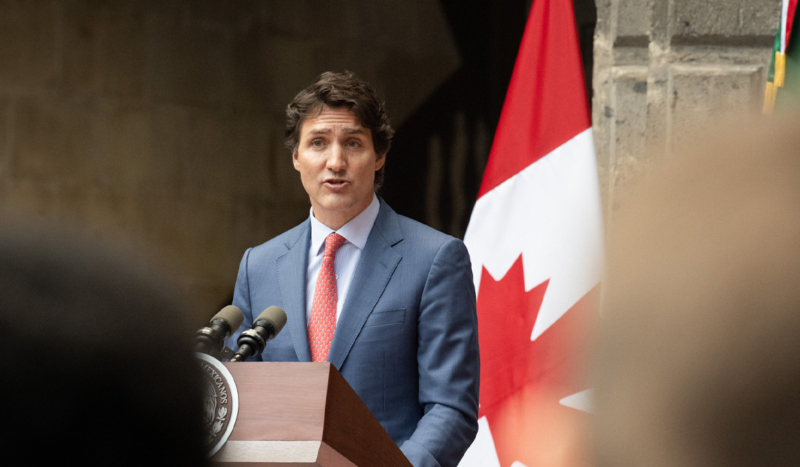
U.S. Department of Homeland Security / Flickr
CV NEWS FEED // The Canadian government has banned military chaplains from praying at Remembrance Day ceremonies, celebrated on November 11, 2024.
According to a press release posted on Father Brad Sweet’s X account, the Minister of National Defense, Bill Blair, had last year assured that “chaplains are not–and will not– be banned from prayer on Remembrance Day.” This was after the publication of a new directive on “Chaplain Spiritual Directions in Public Settings” which apparently left no room for prayers
However, it now seems that Blair was only allowing a one-year exemption.
The 2023 directive, written by Canada’s Chaplain General Brigadier-General Guy Bélisle, supersedes an older directive from 2013, which allowed chaplains to recite public prayer during public ceremonies. The new directive instead gives instructions for “spiritual addresses.”
The new directive reads, “While the dimension of prayer may occupy a significant place for some of our [military] members, we do not all pray in the same way; for some, prayer does not play a role in their lives.”
It continues, “Therefore, it is essential for chaplains to adopt a sensitive and inclusive approach when publicly addressing military members. Chaplains must ensure that all members feel respected and included by undertaking inclusive practices that respect the diversity of beliefs within the CAF [Canada Armed Forces].”
Citing a Canadian Supreme Court ruling that established a “neutrality” policy towards religion by ensuring a “neutral public space free from coercion, pressure and judgment on the part of public authorities,” the directive goes on to explain how chaplains are permitted to give “spiritual addresses” at public military ceremonies.
“When a chaplain’s reflection at a public function is provided within the context of a mandatory public military ceremony/parade/gathering, the reflection shall be inclusive in nature, and respectful of the religious and spiritual diversity of Canada,” the directive continues.
It adds, “Chaplains shall endeavour to ensure that all feel included and able to participate in the reflection with a clear conscience, no matter their beliefs (religious, spiritual, agnostic, atheist).”
The addresses may be spiritual in nature if they follow the definition of spirituality proposed by Canadian Army Integrated Performance Strategy:
Spirituality guides the way we understand our life journey: its path and its practices. It gives meaning and purpose to our lives, and is often expressed or experienced through religion, philosophy, or a rule of life. It is central to the development of moral character, values, and beliefs, and is intrinsic to how we experience self, others, and community. Our spirituality is informed by our world and life view and is most often understood as a means through which it is possible to connect to oneself, nature and the world, to others, privately or within a community.
“Leaders of traditional Indigenous spirituality also have a vital role to play and may share a teaching that is consistent with the inclusive purpose of this directive,” it adds.
The directive continues that the language in spiritual addresses “should employ a language mindful of the Gender Based Analysis (GBA+) principles, incorporate elements in both official languages, and include the use of local languages when appropriate.”
The directive specifically states that such addresses are not to be considered religious, and therefore the order to “remove headdress” should never be given before a chaplain’s spiritual address.
Chaplains who do not comply with the new directive are subject to disciplinary action.

